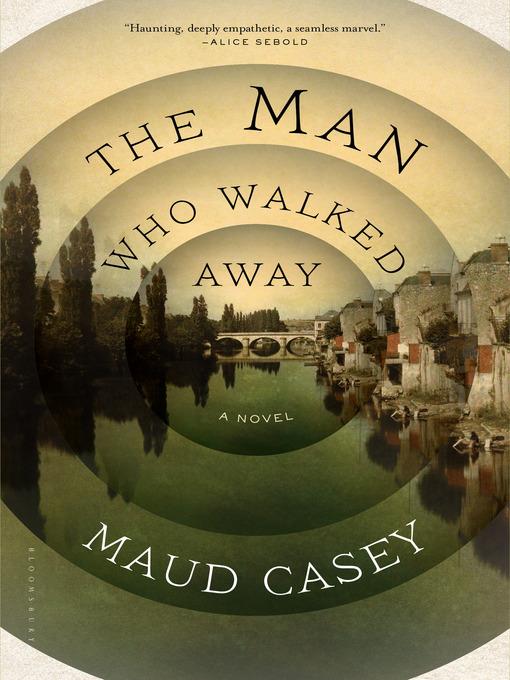
The Man Who Walked Away
A Novel
کتاب های مرتبط
- اطلاعات
- نقد و بررسی
- دیدگاه کاربران
نقد و بررسی

Starred review from January 27, 2014
Casey’s haunting third novel (after Genealogy) is both unconventional and engaging. In a former pilgrimage church in late-19th-century Bordeaux, a nameless director and doctor manage a small mental asylum along unusually humane lines. One day, a man named Albert arrives at its gates. Unable to keep himself from setting out on fresh journeys, or to remember how he got to each new place, Albert has walked through Europe and beyond, unmoored to home, love, and time. As he bonds with the asylum’s patients and offers what he knows of his past to the doctor, who tries to “listen past the words,” Albert tentatively regains his footing in the everyday world. But his work with the doctor transforms both of them in ways that neither expects. Though her plot is solidly rooted in the history of medicine (a character based on famed French neurologist Jean-Martin Charcot makes a memorable appearance), Casey’s true focus is human rather than clinical. Our need for stories, our relationship with time, the inevitability of loss, and our startling endurance all resonate through her beautifully crafted interweaving of image and observation, fairy tale and fact.

Starred review from December 15, 2013
Casey (Genealogy, 2006, etc.) fictionalizes a story based on the real-life figure of Albert Dadas, a man from the late 19th century whose strange pathology dictated to him that he walk continually, though he temporarily ends up in an asylum--and eventually walks away from that as well. Although Dadas is at the center of the narrative, we're also introduced to the Doctor (unnamed but always capitalized) who works at the asylum and who develops his own obsession with Dadas. Along the way, we meet some of the other patients being treated, including the veteran, suffering from a type of PTSD, and Elizabeth, who believes that even the most mundane phenomenon is a "divine miracle." But the most enigmatic figure of all is Dadas himself, who's led to the asylum by a lamplighter. Dadas has been all over Europe, though his memories of these travels are both fleeting and fragmented. The Doctor tries to help him recover his memories with various strategies, the main one being empathetic listening. The key questions the Doctor wishes to ask are "Why do you walk? Why can't you stop?" but the answers to these questions are only hinted at rather than directly confronted. While Dadas vaguely recalls having deserted the army with his friend Baptiste and also alludes to a difficult and problematic relationship with his father, his story ultimately remains cryptic and inexplicable. Lyrical in its style and fascinating in its psychology, Casey's narrative provokes a host of intriguing questions beyond those the Doctor raises, and Casey is wise enough as an author not to provide easy answers.
COPYRIGHT(2013) Kirkus Reviews, ALL RIGHTS RESERVED.

June 1, 2014
A man who has been wandering unaware through 19th-century Europe finally awakens from his dreamlike state and seeks psychiatric treatment, just in its infancy, to determine what drove him. VERDICT Drawing on real-life events, Casey (The Shape of Things To Come) paints a touching portrait of a patient and his doctor as a mystery is quietly resolved.
Copyright 2014 Library Journal, LLC Used with permission.

























دیدگاه کاربران